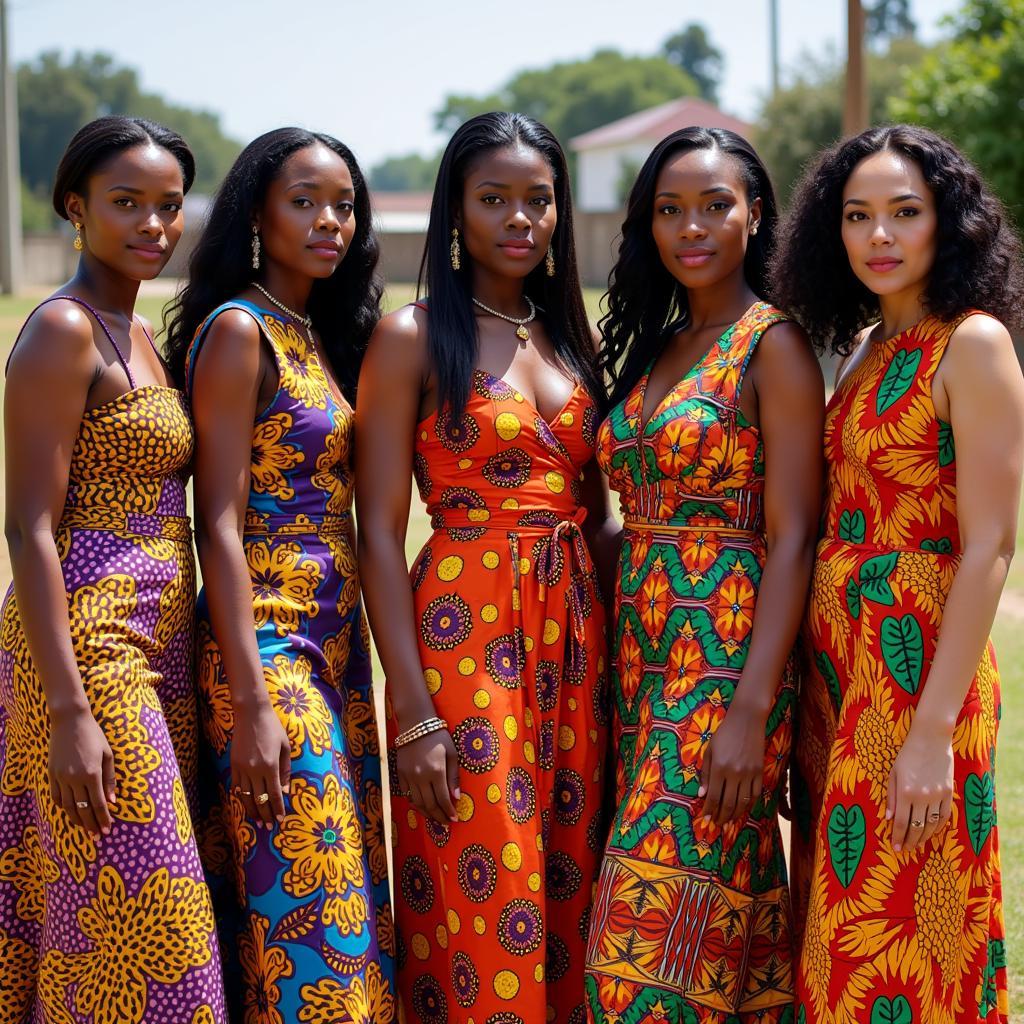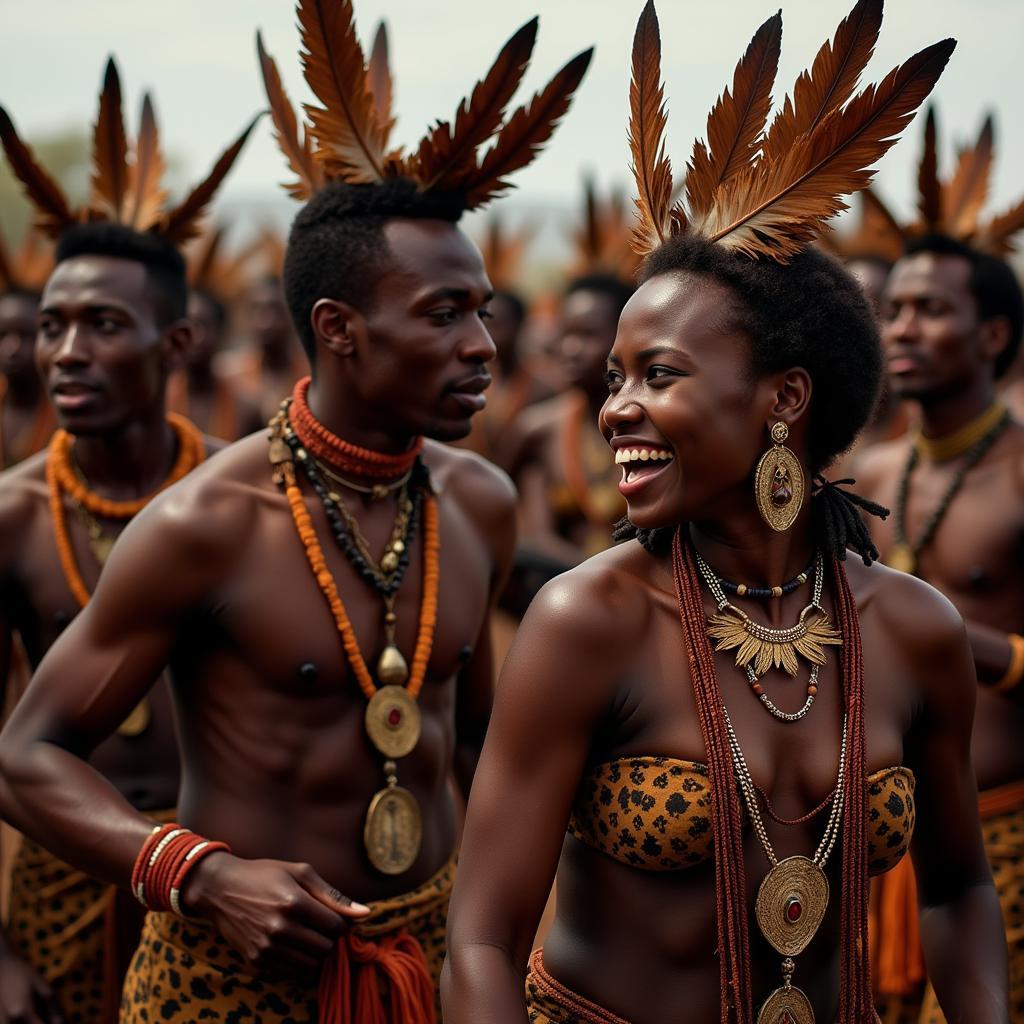1968 in African Cinema: A Pivotal Year
1968 marked a significant turning point in African cinema. Emerging from the shadows of colonialism, African filmmakers began to assert their own voices and perspectives, crafting narratives that reflected the complexities of their newly independent nations. This era saw the rise of distinct cinematic movements and the establishment of key film festivals, laying the groundwork for the vibrant and diverse African film landscape we know today.
The Rise of African Filmmakers in 1968
The late 1960s witnessed a surge in filmmaking across the African continent. Driven by a desire to reclaim their cultural narratives, African directors moved away from colonial-era depictions and explored themes of identity, liberation, and the challenges of nation-building. This new wave of cinema challenged existing power structures and offered a fresh perspective on African Life and culture. This period saw the emergence of pioneering filmmakers like Ousmane Sembène, whose work often focused on social and political issues. These filmmakers weren’t just creating art; they were actively shaping the cultural identity of their nations.
This period also saw the increasing influence of Pan-Africanism in film. Filmmakers from different countries began to collaborate and share their experiences, fostering a sense of unity and shared purpose. This exchange of ideas and resources proved crucial for the development of a distinct African cinematic language. 1968 is a key year to understand this burgeoning movement.
Key Cinematic Movements of 1968
1968 saw the development of several key cinematic movements in Africa. One notable example is the emergence of Senegalese cinema, which gained international recognition for its realistic portrayal of social issues. Another significant development was the rise of North African cinema, with filmmakers exploring themes of cultural identity and the legacy of colonialism. These movements weren’t isolated; they often intersected and influenced each other, contributing to the rich tapestry of African cinema.
FESPACO and its Impact on 1968’s African Cinema
The Pan-African Film and Television Festival of Ouagadougou (FESPACO), first held in 1969, had its roots in the cinematic fervor of 1968. The groundwork laid in this pivotal year paved the way for this important festival, which provided a crucial platform for African filmmakers to showcase their work to a global audience. FESPACO’s establishment solidified the growing influence of African cinema and helped to foster a sense of community among filmmakers across the continent. The anticipation for the inaugural festival in 1969 was palpable, and its success cemented 1968 as a crucial year in the history of African cinema. One can argue that without the momentum built in 1968, FESPACO might not have had the same impact.
“1968 was a year of immense creativity and collaboration,” notes Dr. Aminata Sow, a renowned scholar of African cinema. “Filmmakers were pushing boundaries and challenging conventions, laying the foundation for the vibrant industry we see today.”
What were the challenges faced by African filmmakers in 1968?
Limited resources, censorship, and lack of distribution networks were among the major challenges faced by African filmmakers in 1968. Despite these obstacles, they persevered, driven by their passion to tell their stories.
“Despite facing numerous obstacles, these filmmakers were determined to share their stories with the world,” adds Dr. Kwame Asante, a film historian specializing in African cinema. “Their resilience and creativity are truly inspiring.”
Conclusion: 1968 – A Legacy of Innovation in African Cinema
1968 was a pivotal year for African cinema, marking a shift towards independent storytelling and the emergence of distinct cinematic movements. The year laid the groundwork for future generations of filmmakers and established a foundation for the vibrant and diverse African film industry we see today. Explore more about impactful African best fillm and talented African American women actresses.
FAQ
- What were some key themes explored in African films of 1968? Themes included identity, liberation, and the challenges of nation-building.
- Why was 1968 a significant year for African cinema? It marked a turning point in African filmmaking, with directors asserting their own voices and perspectives.
- What were some of the challenges faced by African filmmakers in 1968? Limited resources, censorship, and lack of distribution networks were common challenges.
- How did FESPACO impact African cinema? It provided a platform for African filmmakers to showcase their work to a global audience.
- What were some of the key cinematic movements that emerged in 1968? Senegalese cinema and North African cinema were among the notable movements.
- Who were some influential African filmmakers of 1968? Ousmane Sembène was a prominent figure in this era.
- How did Pan-Africanism influence African cinema in 1968? It fostered collaboration and a sense of shared purpose among filmmakers from different countries.
Common Scenarios and Questions
- Scenario: A student researching the history of African cinema. Question: What were the key factors that contributed to the rise of African cinema in 1968?
- Scenario: A film enthusiast looking for recommendations. Question: Are there any notable films from 1968 that I should watch?
- Scenario: A filmmaker interested in learning more about African cinema. Question: What are some resources I can use to learn more about the cinematic movements of 1968?
Further Exploration
Explore other articles on our website related to African cinema history, influential directors, and film festivals.
Call to Action
For any assistance or further inquiries, please contact us at Phone: +255768904061, Email: [email protected], or visit our office at Mbarali DC Mawindi, Kangaga, Tanzania. Our customer service team is available 24/7.

